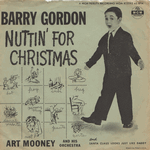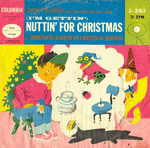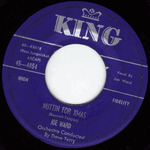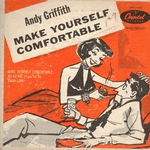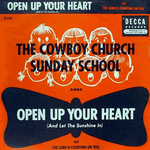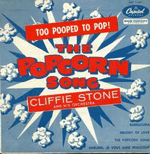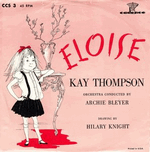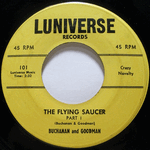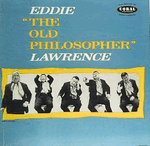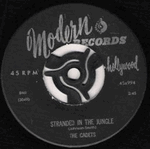Over 2000 One Hit Wonder Songs!!
Last Update 04/03/16

Novelty One Hit Wonders
Novelty songs are basically songs with comical or nonsensical lyrics written with a purpose to humor the listeners. They not only usually come as original stories, but also often come as parodies or answer songs. While many of them use normal music, a number of them also integrated with special, comical effects to enhance their humorous content. Although not widely mention in everyday's music, these novelty songs do play a great role in the history of popular music. There are a lot of novelty records that have broke it to the Billboard Hot 100 chart throughout decades. Many artists have made their career out of novelty songs ...while some of them can only did it once... and these are the lists dedicated to the artists of the latter group.
- Artist
- Art Mooney & His Orchestra with Barry Gordon
- Year
- 1955
- Song
- Nuttin' For Christmas
- Chart
- 6
An American actor/voice actor Barry Gordon became the youngest artist ever to chart the Billboard Hot 100. At the age of seven, he got a chance to record a christmas song with Art Mooney band. The funny christmas tune "Nuttin' For Christmas" became a Top10 hit in US by the end of 1955. It was Gordon's only music success in his long career.
- Artist
- Ricky Zahnd & the Blue Jeaners
- Year
- 1955
- Song
- (I'm Gettin') Nuttin' For Christmas
- Chart
- 21
During Christmas of 1955, "Nuttin' for Christmas" became a phenomenon hit in US - with 5 different covers on the Billboard chart at the same time. One version was done by a Ricky Zahnd, an ex-lawyer from New York City turned a vice-president of the New York basketball and hockey teams. His version climbed to no.21 spot on the chart. It was the only record he ever made.
- Artist
- Joe Ward
- Year
- 1955
- Song
- Nuttin For Xmas
- Chart
- 20
Yet another version of the 1955's novelty christmas hit song. Joe Ward was an eight-years-old boy from Cincinnati, who gained a brief, unexpected fame when his record "Nuttin For Xmas" became a Top20 hit by the end of 1955. He never recorded any other songs again.
- Artist
- Andy Griffith
- Year
- 1955
- Song
- Make Yourself Comfortable
- Chart
- 26
Andy Griffith was an American actor, film producer, and director from the late 1950s. He was known for some recent recordings and was inducted into the Country Gospel Music Hall of Fame in 1999. His first music success happened in 1955, when his comedy talkshow record "Make Yourself Comfortable", became no.26 hit on the chart and his only chart success to date.
- Artist
- Cowboy Church Sunday School
- Year
- 1955
- Song
- Open Up Your Heart (And Let The Sunshine In)
- Chart
- 8
Stuart Hamblen was one of the earliest singing cowboy on American radio back in 1926. He hosted many popular programs before turned into Christian songwriter in the 1950s. The song he recorded with his family "Open Up Your Heart" was a Top10 hit in 1955 and Hamblen's only chart hit till his death in 1989.
- Artist
- Cliffie Stone
- Year
- 1955
- Song
- The Popcorn Song
- Chart
- 14
Cliffie Stone was an American country artist/music publisher who managed and produced many famous artists - such as Tennessee Ernie Ford and Hank Thompson. He also released his own works under various names. His novelty tune "The Popcorn Song" became a Top20 hit in 1955 and earned him a name as a musician. However, he could not repeat that success again til his death in 1998.
- Artist
- Kay Thompson
- Year
- 1956
- Song
- Eloise
- Chart
- 39
Catherine Louise Fink (aka Kay Thompson) was an American singer/songwriter, and children's book author in the mid of the 20th century. In 1955, she wrote a song about a six-year-old girl character of her book. The funny, child-like song "Eloise" became an unexpected Top40 hit in the early 1956 - followed with TV musical the same year. None of her following attempts ever came close to this one hit.
- Artist
- Buchanan & Goodman
- Year
- 1956
- Song
- The Flying Saucer (Part 1 & 2)
- Chart
- 3
Widely regarded as the pioneer of "break-in" record, Bill Buchanan and Dickie Goodman was a pop duo from New York in the mid 1950s. This commentary of fictional UFO sighting, created by combining pieces of several hit records from the early 50s, became a no.3 hit in 1956. However, all their following works only yielded in one more small hit and they split in the early 1960s.
- Artist
- Eddie Lawrence
- Year
- 1956
- Song
- The Old Philospher
- Chart
- 34
Eddie Lawrence was an American monologist, singer, and TV personality from Brooklyn. He made his name in the music world only once when his singles "The Old Philosopher" became an unexpected Top40 hits in 1956. This nonsensical dialogue earned him an image of an 'Old Philosopher', which he was known for throughout his entertainment career. It was the only hit singles he had ever made in his long career.
- Artist
- The Cadets
- Year
- 1956
- Song
- Stranded in the Jungle
- Chart
- 15
Although they was not the original artist of this song, the Cadets was the one that made this up-tempo, novelty tune a big hit in the late 1950s. However, they was unable to follow up with this instant success as they quickly ran out of hits and several original members gradually left the band. The remaining members struggled to continue but eventually disbanded in 1964.
